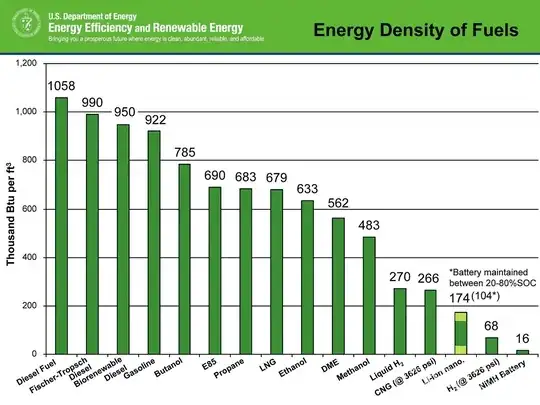While energy density is a rather nice property of gasoline and diesel, it's not the primary driver of their use. Instead, the primary driver is a rather practical one: they're cheaper.
On the consumer side of things, we don't tend to notice this, as most places price things volumetricly — so much per gallon. In order to see the "true" price, you have to account for things like energy density and engine efficiency. In the end the price which matters is dollars per mile, not dollars per gallon. If you do the conversion, you see that ethanol (E85) is consistently around 20% more expensive (on a per mile basis) in the United States.
But the lower energy density of ethanol doesn't automatically kill the calculation. You can see this in places like Brazil. Brazil has a substantial number of ethanol-powered vehicles. There isn't anything special about the ethanol in Brazil which increases its energy density. The main thing that's changed is that due to the large number of sugarcane plantations in Brazil, ethanol is much, much cheaper than elsewhere. Price of a fuel is a complex mix of the cost of production, the cost of transportation, and the local tax policy. What's the cheapest option in one place is not the cheapest in another, and people will gravitate towards whatever is cheapest locally.
If the cost per mile of ethanol were to become cheaper in the United States or Europe, then you'd see people switch over there too — even if that means they have to increase the size of their fuel tanks or fill up more often. (As evidenced by people switching over to electric cars, despite the comparatively horrible energy density of batteries. Electricity is much less expensive per mile than gasoline and diesel, so it can make sense to switch over if you can bear the more frequent re-fueling.)
